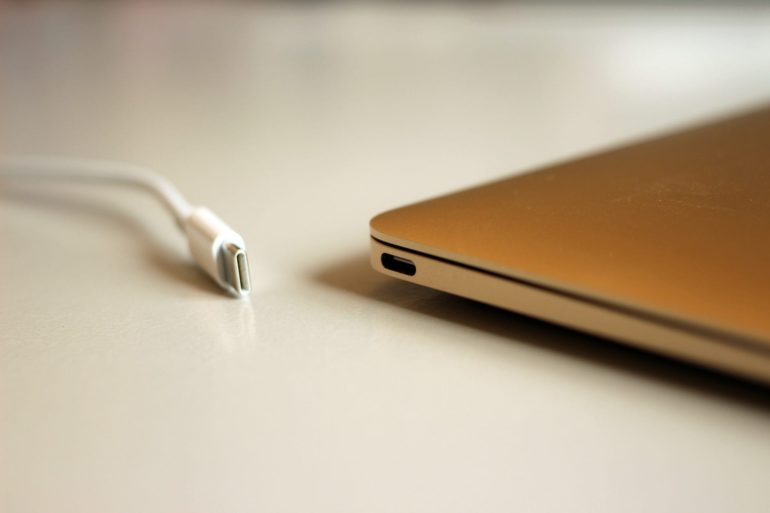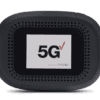iPhone users may finally have budget-friendly options for USB-C to Lightning cables, as Apple reportedly approved the manufacturing of third-party cables. According to a report from the Japanese blog Macotakara, Apple announced their plans to the participants of the Made for iPhone or “MFI licensing program”. The report also states that manufacturers will be required to use the new C94 Lightning connector. This connector is currently used by the Apple USB-C to Lightning Cable A1703 which was released in May 2018.
The third-party connectors will provide a maximum power supply of 15W for non USB PD-compatible adapters (standard power adapters) and 18W for USB PD-compatible ones (fast-charging adapters).
A report from MacRumors indicates that these connectors will be sold to qualified hardware manufacturers for $2.88 per unit, and are expected to ship in mid-January 2019. Given the time for production, third-party accessory makers who are part of the MFI program — such as Anker, Incipio, Aukey and Belkin — could have these cables ready for selling by February or March of 2019.
Fast-Charging Capabilities
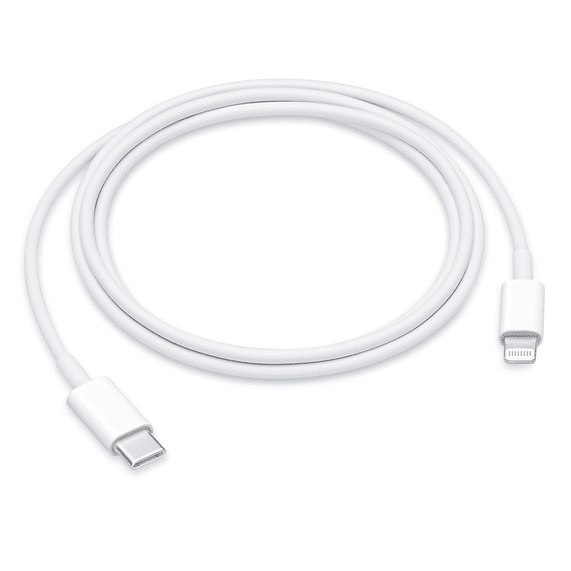
Image Source: Apple
Consumers need the USB-C to Lightning cable to take advantage of the fast-charging capabilities introduced in the iPhone 8. With this feature, a 30-minute charge can restore up to 50 percent of the phone’s battery life, Apple claims. To make this feature possible, Apple makes use of the USB Power Delivery (PD) specification of USB-C. It is equivalent to Qualcomm’s Quick Charge standard which is supported in some Android phones. Aside from the cable, consumers will also need a USB-C PD-compatible charger. Both accessories are not included with the phone’s package, as the legacy USB to Lightning cables and 5W USB bricks are still being distributed.
There are speculations that Apple will include these accessories in box for their next line of smartphones, but one can only hope that these rumors are true. Currently, these cables are exclusively distributed by Apple, and they cost $19.00 for the one-meter cable or $35.00 for the two-meter cable.
This is after the $6 price cut introduced by the tech giant last November 2018. For the adapter, the cheapest Apple option is the 18W power adapter introduced in early December 2018 and is available for $29, but third-party adapters, such as the 30W adapter from Anker, are also good choices.
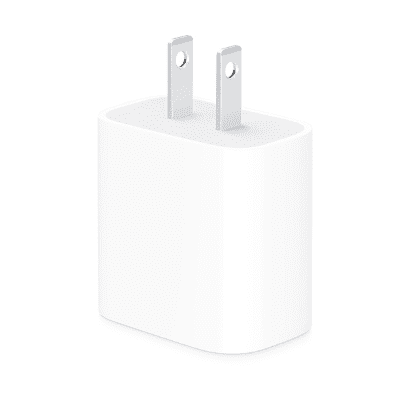
Image Source: Apple
Charge Using the iPad
Last November, Apple shipped its iPad Pro which features a USB-C port. This has opened new capabilities for the iPad to charge other devices, take for example, an iPhone. This capability is most likely to increase the demand for USB-C to Lightning cables as the iPad becomes a convenient power source when the need arises. The specifics for this have not been known yet, such as how much power the iPad will be able to provide, but it is a good feature to look forward to.
Cheaper, Personalized USB-C Cables
Having USB-C to Lightning cables from third-party manufacturers would greatly benefit the consumers as this will provide them with cheaper alternatives to Apple’s own product, while being sure that they are receiving products that uphold Apple’s performance standards. Many of these manufacturers will most likely add their own features to these cables, much like the braided cable that adds durability in most USB cables today. It is also possible that these cables will come in different colors and lengths. However, this would mean that the legacy cables and adapters that come with the current phone models will become deprecated.
MFI-Certified Products
Buying accessories from third-party manufacturers can pose a risk to the device, especially if it is of poor quality. Thus, to make sure the accessories pass the Apple standard, it is important to check if the manufacturer is a member of the MFI licensing program. The easiest way is to check for the MFI logos on the accessory or in its package. Another way is to verify the license of the accessory. Follow the instructions in the MFI FAQ page to find out how this can be done.
Available Options in the Market
It is always the best choice to go with Apple’s own cables, but if the price is a bit steep, these are some alternatives that are worth looking into. However, it is important to note that using these non-MFI licensed products can pose a risk for the device, so choose with caution.
Hunda Lightning to USB-C Braided Cable
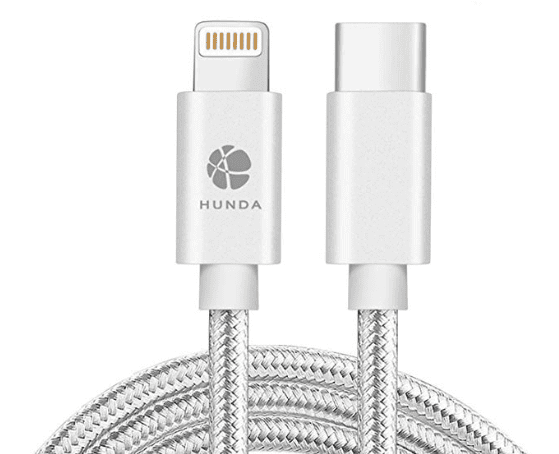
Image Source : Amazon
The one-meter Hunda cable is able to charge with speeds of up to 2.4A, and transfer up to 480 Mbps when used for syncing. The braided nylon finish makes it more durable in comparison to Apple’s own cable. It also comes with a nice snap-strap for easy storage. If the cable has some issues, consumers can avail of its 18-month warranty.
Steanum USB-C to Lightning Cable
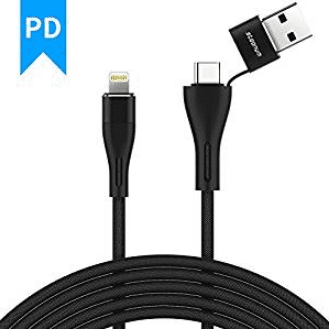
Image Source : Amazon
A feature that sets the 1.2-meter Steanum cable apart from its competitors is that it includes a neat attachment that converts the USB-C to a USB-A connector. The cable comes with a braided cord for extra durability. It can support fast-charging, and can also support up to 10Gbps high-speed transmissions between laptops and phones. It is not recommended for use with the iPad Pro, though.
